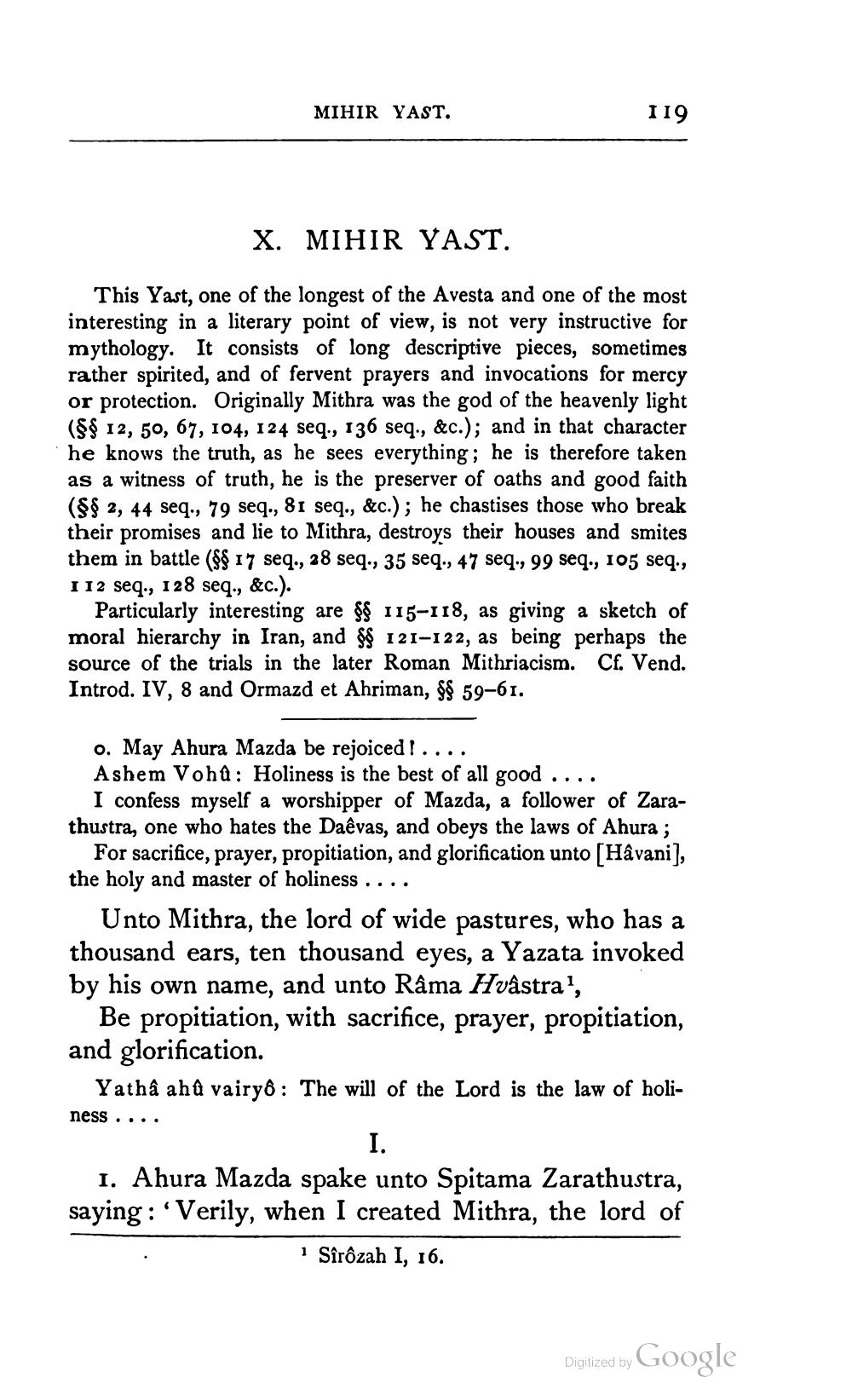________________
MIHIR YAST.
119
X. MIHIR YAST.
This Yast, one of the longest of the Avesta and one of the most interesting in a literary point of view, is not very instructive for mythology. It consists of long descriptive pieces, sometimes rather spirited, and of fervent prayers and invocations for mercy or protection. Originally Mithra was the god of the heavenly light (S$ 12, 50, 67, 104, 124 seq., 136 seq., &c.); and in that character he knows the truth, as he sees everything; he is therefore taken as a witness of truth, he is the preserver of oaths and good faith (S$ 2, 44 seq., 79 seq., 81 seq., &c.); he chastises those who break their promises and lie to Mithra, destroys their houses and smites them in battle ($$17 seq., 28 seq., 35 seq., 47 seq., 99 seq., 105 seq., 112 seq., 128 seq., &c.).
Particularly interesting are $$ 115-118, as giving a sketch of moral hierarchy in Iran, and $$ 121-122, as being perhaps the source of the trials in the later Roman Mithriacism. Cf. Vend. Introd. IV, 8 and Ormazd et Ahriman, $$ 59-61.
o. May Ahura Mazda be rejoiced!.... Ashem Vohu: Holiness is the best of all good ....
I confess myself a worshipper of Mazda, a follower of Zarathustra, one who hates the Daêvas, and obeys the laws of Ahura;
For sacrifice, prayer, propitiation, and glorification unto [Hâvani], the holy and master of holiness ....
Unto Mithra, the lord of wide pastures, who has a thousand ears, ten thousand eyes, a Yazata invoked by his own name, and unto Râma Hvâstra',
Be propitiation, with sacrifice, prayer, propitiation, and glorification.
Yathâ ahû vairyô: The will of the Lord is the law of holi
ness....
T
1. Ahura Mazda spake unto Spitama Zarathustra, saying: 'Verily, when I created Mithra, the lord of
1 Sîrôzah I, 16.
Digitized by Google




